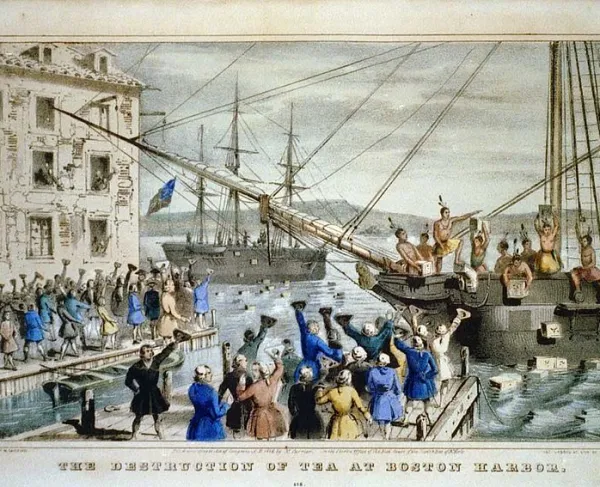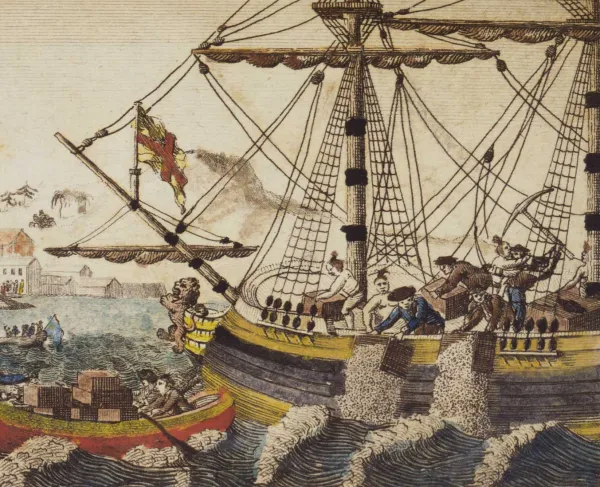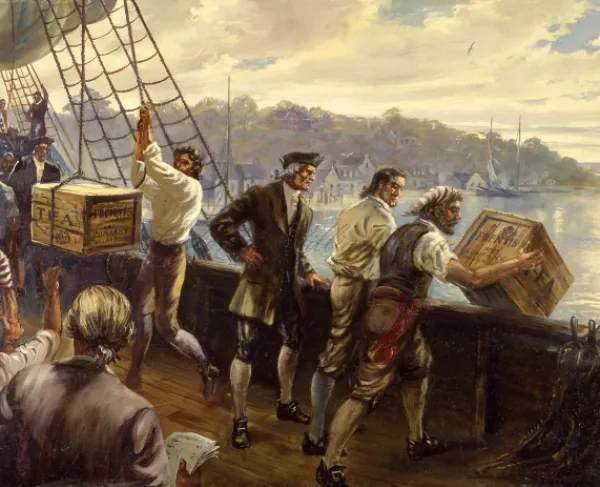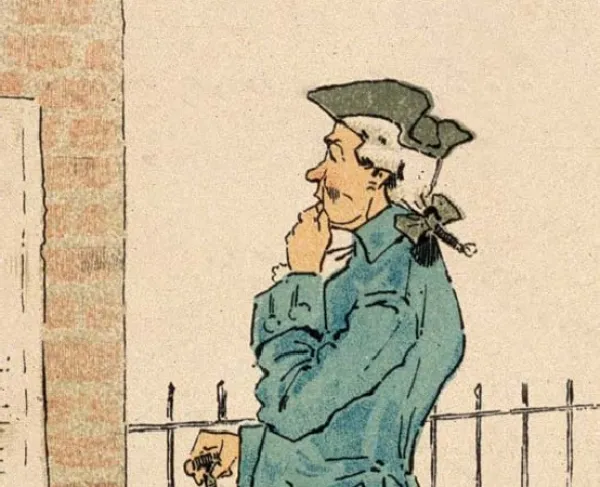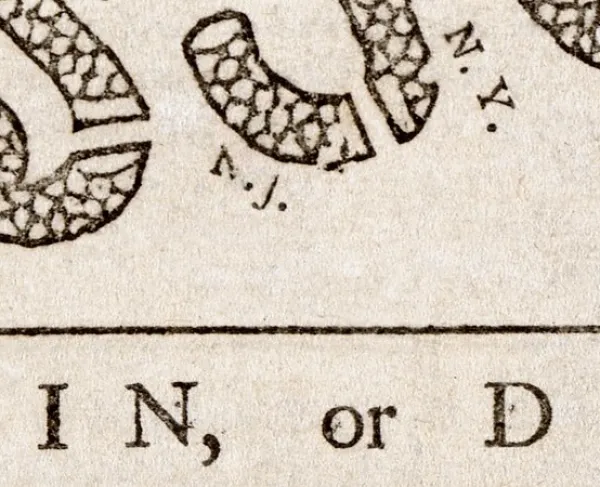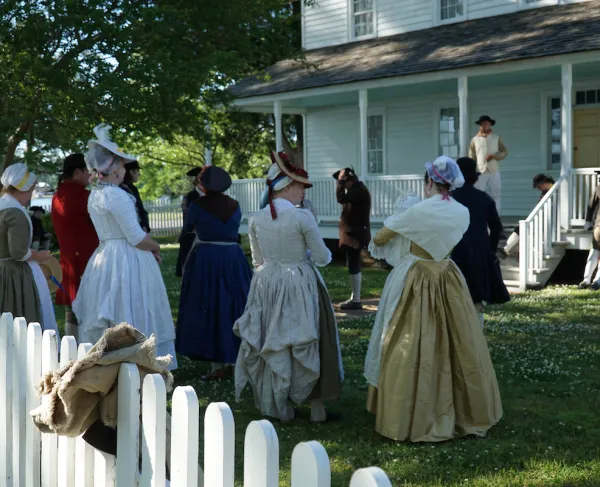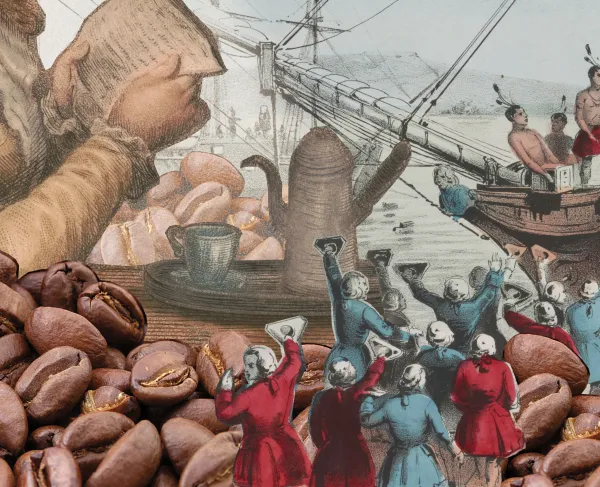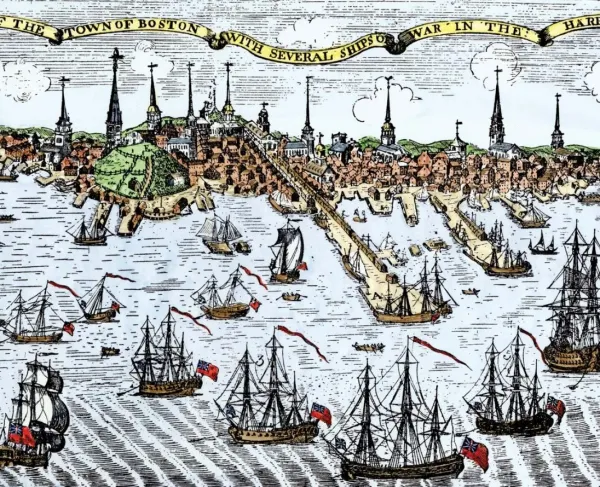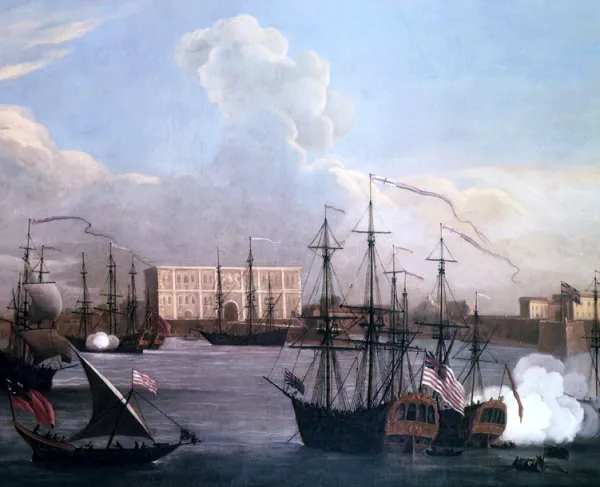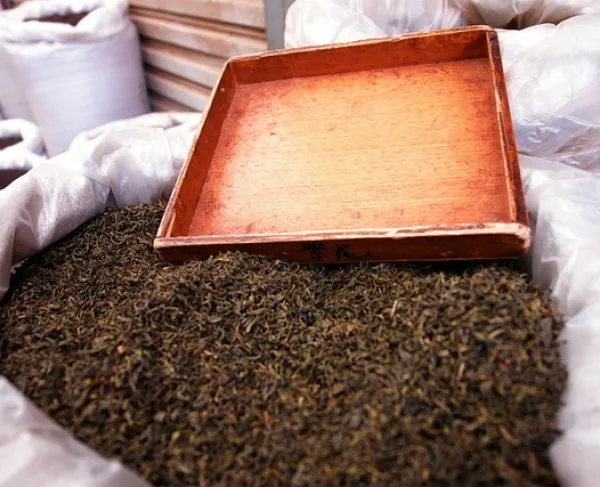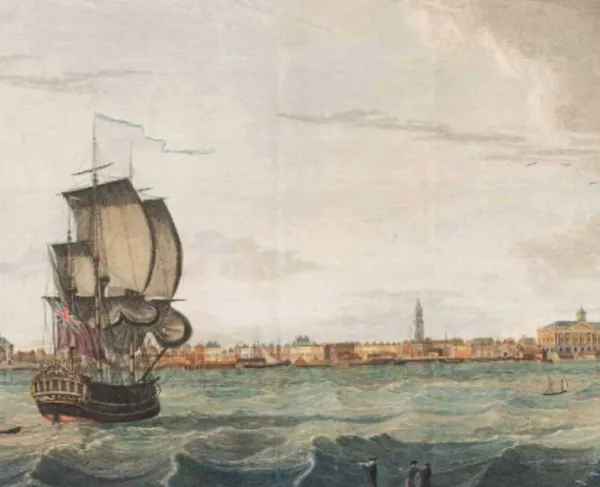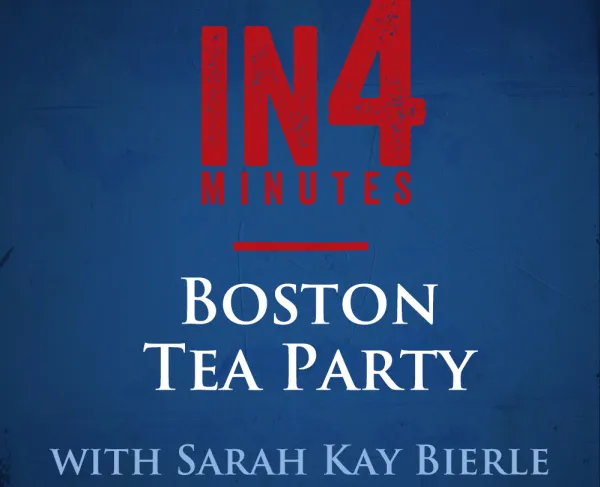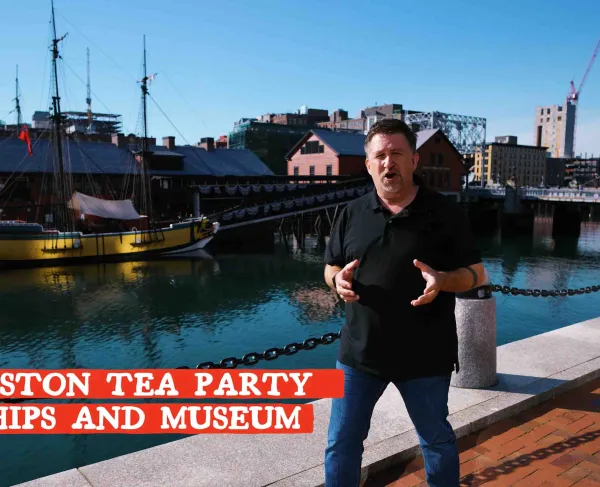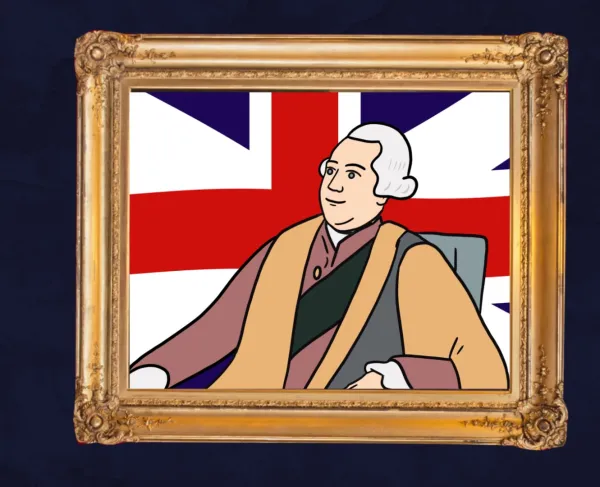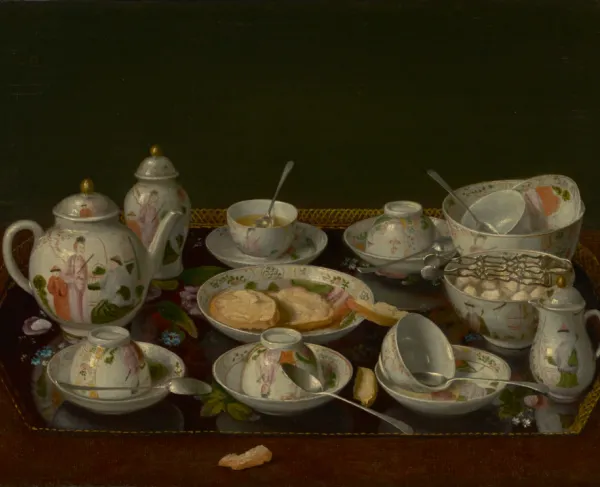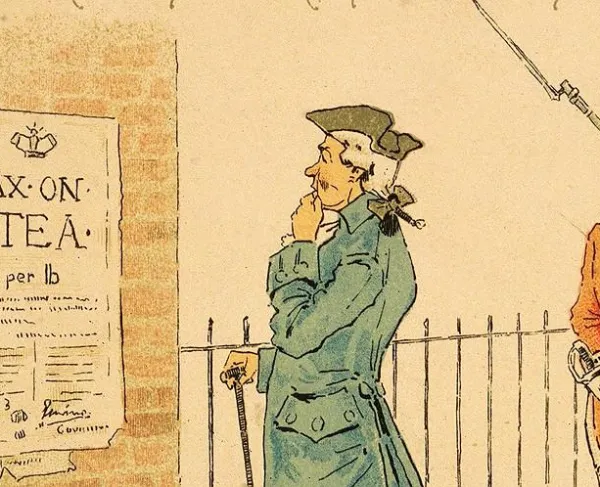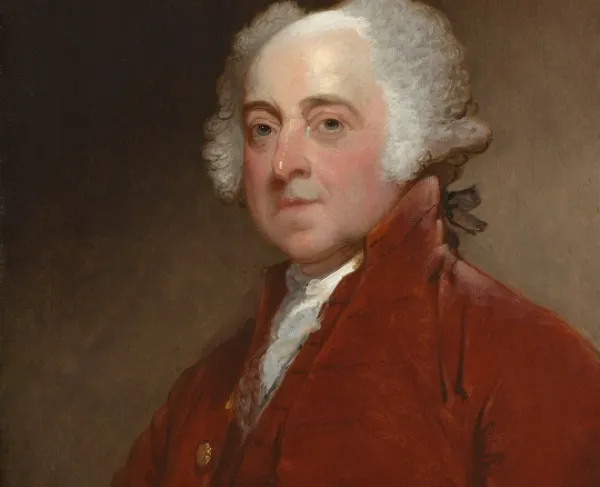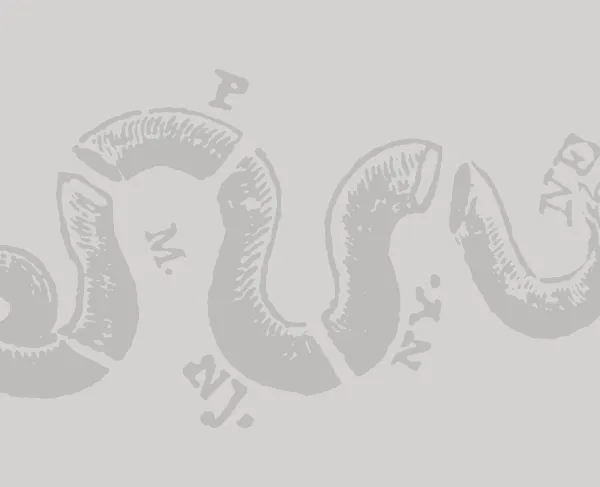
“Boston Tea Party;” by W.W. Cooper. Engraving in The History of North America, 1789.
Boston Tea Party
Brewing A Revolution in 1773
It is one of the most iconic scenes in the American epoch—defiant colonists dumping crates of tea into Boston Harbor during the night of December 16, 1773. A culminating event after a series of protests over various British taxes over previous years, Great Britain had introduced the Tea Act on May 10, 1773 to reassert itself as the governing authority of the American colonies and spare the East India Company from financial ruin. Dissenters like Samuel Adams and the Sons of Liberty continued to invoke “no taxation without representation,” and colonial newspapers widely reported the schedule of the first shipment of tea. Some colonial ports persuaded the tea ships to turn back to England, but in Boston, the British governor anticipated their arrival and the ships entered the harbor.
On December 16, 1773, the day before tax deadline, another crowd of thousands gathered at the Old South Meeting House. After receiving word that Governor Hutchinson again refused to allow the ships to leave, the assembly voted to prevent anyone from unloading or using the tea. Later that evening, 30 to 130 men—most of whom belonged to the Sons of Liberty—boarded the three tea ships. Some disguised themselves as Mohawk warriors to conceal their identities. They pried open the 342 chests with axes and dumped the tea overboard into the water.
The Boston Tea Party sparked controversy almost immediately. When the sun rose on December 17 to reveal 342 crates of tea floating in the harbor, the governor condemned it as an act of treason. The Sons of Liberty worked tirelessly to publicize the Tea Party, promoting it as an act of defense against British taxation and a last resort to save colonial rights. The British Parliament passed the Coercive Acts, known colloquially throughout America as the Intolerable Acts, as retribution for the Tea Party; the acts closed Boston Harbor to trade, curtailed free elections in Massachusetts, and essentially instituted martial law.
The Boston Tea Party moved the American colonies one step closer to war with Great Britain and eventual independence.
Read About the Boston Tea Party
The Boston Tea Party
“Boston a Teapot Tonight!”
The Other Tea Parties
“No Taxation Without Representation”
Who Were the Sons of Liberty?
The Daughters of Liberty
Committees of Correspondence
Sip Sip Hurrah! How Coffee Shaped Revolutionary America
The Intolerable Acts
The Colonial Responses to the Intolerable Acts
The British East India Company
Tea: Brewing a Revolution
The Tipping Point: The Boston Tea Party
Defying the King: The Charleston Tea Party Protest
Boston Tea Party Ships and Museum
Watch Videos about the Boston Tea Party
In4: The Boston Tea Party
Tour the Boston Tea Party
Lord North: Britain's Worst Prime Minister?
People Involved in the Boston Tea Party
Primary Sources about the Boston Tea Party
